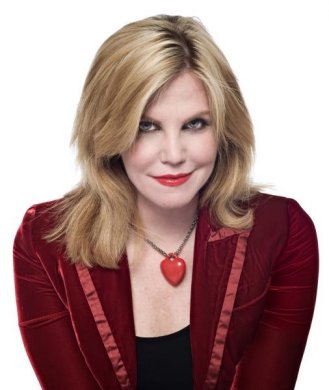That first word I learned to write was “flower.” Lame, right? It was the seventies, what can I say? Most kids learn to write their names. Not me. My teacher wrote the word “flower” on an index card and gave it to me. She gave me a word. I felt like Moses. The first thing I did was write a book. It was a simple narrative. Just the word flower, over and over again. I stapled the pages together, and illustrated it. Sales were disappointing, but the reviews were solid.
Despite this early promise, my plan was not to become a professional writer, or a world famous horticulturalist. I was going to be a firedog. My parents supported this. Neither one pointed out that I was not a Dalmatian. They were hippies, and I guess didn’t want to be buzz kills.
I continued to write all the time as a kid. I was always storming off into my room to “work on my novel.” But I never imagined that I would be an author. A firedog, yes, but an author? That seemed unattainable.
In retrospect, it amazes me that I ever thought that I’d do anything else.
Here’s why.
My mother hid money in books. If you want your kid to read a lot, I really suggest you try this. Opening a book at our house was always a thrilling proposition because I never knew what would flutter out of it: a two-dollar bill, a pressed flower, an old postcard. The flowers and postcards went back in the pages. But the cash went straight to the candy store. Talk about positive reinforcement. I couldn’t wait to pull a book off a shelf.
Even at our food-stamp-free-lunch poorest, my mother bought books. She found them at thrift stores, garage sales, and used bookstores. Do not dog-ear books, she told me. Do not read them in the tub. This from a woman who wrote in every book she ever gave me. The inscription would include when they were given, the occasion, what we’d been doing that day, where we’d come from, where we were going, why that book at that time. I never kept a journal, but I can pretty much piece my life together reading what my mother wrote on the inside of the book jackets of my childhood.
My mother tricked me into loving poetry. She appealed to my competitive instincts by instituting a mother-daughter poetry slam. We each memorized poems. She from THE NEW YORKER BOOK OF POETRY, me from A CHILD’S GARDEN OF VERSES. Then we’d recite our respective poems back and forth and see who could get through theirs without a hitch. As we progressed, the competition became about who could memorize the most poems. Soon I had memorized entire CHILD’S GARDEN OF VERSES and was thumbing through THE NEW YORKER BOOK OF POETRY for more ammunition.
But here’s my mother’s secret weapon. She left me alone. It was just the two of us –-- I spent summers with my dad. And she was back in school and then working, so I was left on my own a lot. I played epic games of Barbies. I’m talking six hours on my belly playing out an international Malibu spy saga. When my Barbie ensemble was not enough, I drew little figures on index cards. I had hundreds of them, in a recipe box, and I would use them to act out stories in my mind. Eventually, I realized I didn’t need the index cards anymore. I could just daydream. We lived in the county at this point, and drove 30 minutes every morning to get to my school. These 30 minutes were precious to me. I spent them imagining great derring-do. “Don’t talk to me,” I told my mother. “I’m thinking.”
I didn’t know it yet, but I was writing.
My mother died many years ago.
I still find an old note or a buck or two every so often, tucked in the pages of one of her old books. But I get the greatest pleasure in the words she wrote in all the books she gave me when I was growing up. My six-year-old daughter has inherited those books, and when I open one to read to her, she always says the same thing: “Mama, read me the inscription.”
She will never know my mother’s voice. But she will know her handwriting. She will read the books my mother picked out. And if she’s lucky, she will learn to make stories.
In the meantime, I have to go memorize some poems. This kid is going to be hard to beat at Poetry Slam.



